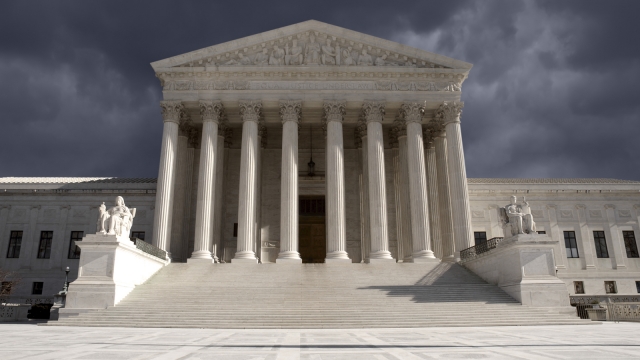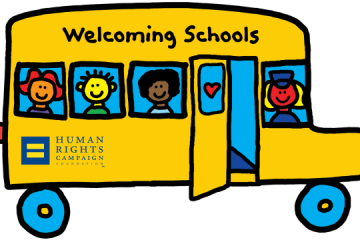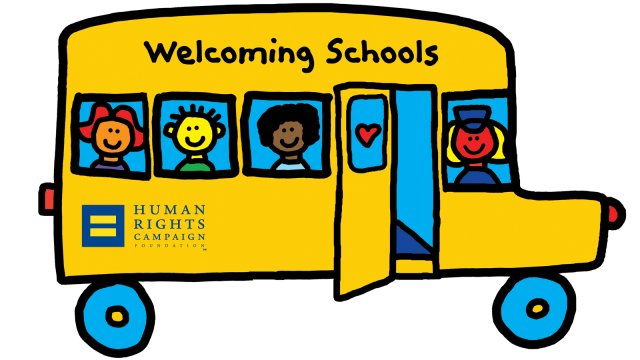HRC Arkansas: Discriminatory Birth Certificate Bill Targets Trans People
Today, HRC expressed grave concern over a proposed bill that would prohibit changes to a person’s g…
Read moreDedicated To People, The Planet, and All Its Inhabitants – Since 1996

Today, HRC expressed grave concern over a proposed bill that would prohibit changes to a person’s g…
Read moreEquality is in the spotlight again in a new Coca-Cola ad, this time featuring a brother and sister fannin…
Read more
Today, HRC responded to the news that the Supreme Court of the United States will not hear the case of G.G. v. Gloucester County School Board this term. Gavin Grimm, a transgender boy, filed suit against the school board alleging it violated Title IX of the Education Amendments of 1972 by denying him use of the boy’s restroom.
“The Supreme Court of the United States sent this case back to the Fourth Circuit as a direct result of the Trump Administration rescinding school guidance protecting transgender students. Now, thousands of transgender students across the country will have to wait even longer for a final decision from our nation’s highest court affirming their basic rights,” said HRC Legal Director Sarah Warbelow. “To be clear, transgender students are covered by Title IX and are entitled to the same rights and protections as every other student. But while this plays out in our courts, we are deeply concerned about the consequences this could have for transgender students, who may not be aware of their rights or be subject to increased discrimination by others who feel emboldened by the Trump Administration’s recent actions. Now more than ever it is crucial for all of us to affirm to transgender students that they are equal, they are valued, and there are millions of people across our country who will have their backs, no matter what.”
Today, the Supreme Court sent the Grimm case back to the Fourth Circuit Court of Appeals following the Trump Administration’s decision to rescind protective school guidance for transgender students. Because the Fourth Circuit’s original ruling was heavily based on the Obama Administration’s guidance, the Supreme Court has asked the lower court to revisit the case and rule on the underlying statutory question regarding the scope of Title IX. Title IX prohibits discrimination against transgender students including with respect to restroom access regardless of the guidance.
In June, a federal court ordered the Gloucester County School Board to allow Grimm full access to the restroom that corresponds with his gender identity, consistent with a ruling from the Fourth Circuit Court of Appeals. In August, the Supreme Court of the United States halted the lower court’s order, allowing the school board’s discriminatory policy to remain in place while the court awaited an application by the school board to have its full appeal heard.
48 hours after Jeff Sessions was confirmed as Attorney General and a day after being sworn in, the Department of Justice moved to eliminate the Obama Administration’s challenge to a nationwide injunction against enforcement of the guidance, allowing the nationwide hold to continue. Despite this action, transgender students facing discrimination can still file suit under Title IX of the Education Amendments of 1972.
Allowing transgender people to access facilities consistent with their gender identity — something compelled for years by laws in 18 states as well as embraced by hundreds of cities and school districts around the country — has not resulted in problems. On the other hand, forcing transgender students to use sex-segregated facilities contrary to their identity can impose real harm on transgender students, further compounding the discrimination and marginalization they already face.
A recent study correlated the high suicide rates of transgender students with discriminatory bathroom restrictions, and, according to the Youth Suicide Prevention Program, more than 50 percent of transgender youth will have had at least one suicide attempt by their 20th birthday.
Read moreBrandi Burgess is the bisexual daughter of the popular syndicated radio show co-host Rick Burgess, of the…
Read morePost submitted by Senior Global Programs Officer Jay Gilliam
An overflow crowd of Congressional staffers…
Read moreToday, HRC blasted the Arkansas Supreme Court for striking down a local ordinance banning discrimina…
Read more
Today, HRC and the ACLU of South Dakota slammed a vote by the South Dakota Senate passing Senate Bill (SB) 149 — discriminatory legislation targeting LGBTQ people and other minorities. SB 149 would enshrine taxpayer-funded discrimination into state law by allowing state-funded adoption and foster care agencies to reject prospective LGBTQ adoptive or foster parents based on the agency’s purported religious beliefs.
“Let’s be clear. This ‘license to discriminate’ proposal is a direct assault on LGBTQ South Dakotans and their families,” said HRC Legal Director Sarah Warbelow. “Taxpayer money should never be used by state-funded adoption agencies to discriminate against prospective parents based on factors that have nothing to do with good parenting. This measure could have consequences not just for LGBTQ couples, but for single people, divorced people, or even those of a different faith. The South Dakota House of Representatives must reject this atrocious legislation allowing discrimination contrary to the best interests of children in desperate need of loving, caring homes.”
“This bill works against the needs of vulnerable children in the foster care system in South Dakota by denying them access to good families and important services,” said ACLU of South Dakota Policy Director Elizabeth A. Skarin. “Our legislators must take a stand for all South Dakotans — and especially vulnerable children — and ensure that discrimination doesn’t get in the way of loving families seeking to provide homes for those who don’t have them.”
SB 149 would allow state-licensed and taxpayer-funded child-placement agencies to disregard the best interest of children, and turn away qualified South Dakotans seeking to care for a child in need — including LGBTQ couples, interfaith couples, single parents, married couples in which one prospective parent has previously been divorced, or other parents to whom the agency has a purported religious objection. The measure would even allow agencies to refuse to place foster children with members of their own extended families — a practice often considered to be in the best interest of the child. A qualified, loving LGBTQ grandparent, for example, could be deemed unsuitable under the proposed law. It would also allow agencies to refuse to provide appropriate medical and mental health care to LGBTQ children if the agency has a purported moral or religious objection to providing those services. Shockingly, under SB 149, an agency couldn’t lose its license or contract as a result of subjecting a child to abusive practices like so-called conversion therapy if it claimed such “therapy” is compelled by religious belief.
Research consistently shows that LGBTQ youth are overrepresented in the foster care system, as many have been rejected by their families of origin because they are LGBTQ. These young people are already especially vulnerable to discrimination and mistreatment while in foster care, and SB 149 would only exacerbate the challenges they face.
The attack on fairness and equality in South Dakota is part of an onslaught of bills being pushed in 2017 by anti-equality activists around the country. HRC is currently tracking more than 70 anti-LGBTQ legislative proposals in 24 states. For more information, visit http://hrc.im/2017legislature.
Read more“Tupelo is an awesome town. I actually spoke here, told my story.”
Hayden, a transgender man…
Read more

Post submitted by Kimmie Fink, Welcoming Schools Facilitator
It’s a challenging time for teachers. In the last few weeks, as executive orders to fund a border wall with Mexico and suspend the U.S. Refugee Admissions Program have been handed down, educators are again in the position of not just explaining new rules and policies to students, but supporting those who are understandably worried for themselves and their families. Teachers must be prepared to address bias-based bullying, advocate for refugee and immigrant children and families, and create classroom environments that honor all identities.
That might seem like a daunting prospect, especially for elementary school teachers. High school students may be better able to articulate their thoughts and fears through academic conversation or writing, but elementary students experience the same anxiety without that kind of outlet. Fortunately, elementary educators have a “go-to” strategy for difficult situations: read-alouds. For teachers wanting to address issues concerning immigration as they pertain to children, Welcoming Schools has developed the following list: Books for Students: Children, Families, and Immigrants.
For younger children, consider sharing books about immigration and refugees with message of inclusion. The Color of Home, by Mary Hoffman, tells the story of first grade Somali refugee Hassan. Hassan struggles to adjust to a new language, culture, and home but finds an outlet through painting.
A chapter book, such as Julia Alvarez’s Return to Sender, is an excellent option for intermediate readers. Alvarez’s novel centers around the challenging friendship between the son of a farmer and the daughter of a migrant worker.
Inclusive read-alouds serve a dual purpose. They provide children with both mirrors and windows. Students should see themselves reflected in literature, and they should also have the opportunity to learn about those who are different. Read-alouds like those featured by Welcoming Schools simultaneously validate the experiences and identities of minority groups and provide opportunities for developing empathy and understanding. These days, all our students could use a lot more of that.
HRC’s Welcoming Schools is the nation’s premier program dedicated to creating respectful and supportive elementary schools in embracing family diversity, creating LGBTQ-inclusive schools, preventing bias-based bullying, creating gender-expansive schools, and supporting transgender and non-binary students.
Read moreIn the wake of the deaths of at least seven transgender people in just the first two months of this year,…
Read more